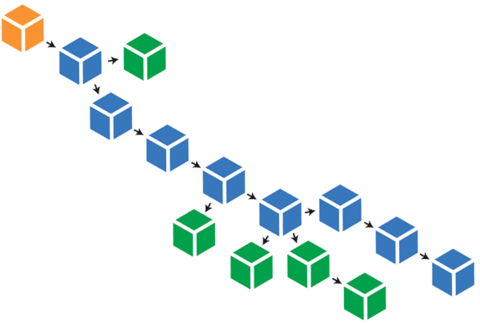
Blockchain and peer-to-peer network are built on top of strong philosophical and moral principles, solving especially problems related to centralization of power. If a very powerful entity or its part acts or decides to act immorally, inflicting harm to others for any kind of selfish or greedy purpose, it might eventually become unstoppable. Personal/Individual failures in big financial institutions is a good example. Some powerful entities emerge through enriching themselves at someone’s expense, exploiting greed, weakness or fear while producing no value to anyone. Intentionally or not, any kind of game play with human lives at stake is questionable. Eventual bankruptcy of such institution is averted by governments printing money and causing inflation that makes the poor pay for it.
The original reason behind decentralization is fair incentivization, transparency, morality, humanity and sustainability. It is all part of the design in order to prevent corrupted and immoral individuals to play the system or others and to limit cancel culture as in order to maintain democracy, those warning about evil should not be ostracised by the hateful. This is very common effect of mass psychology often driven simply by absence of love, lust for making money, having influence over people but perhaps combination of everything. Greed tend to be unstoppable because similarly minded individuals incline to join forces until small businesses and individuals cannot thrive as corporations eliminate competition, we go back to times of East India Company which had ruled the world for 2 centuries by violence and slavery, starting massive industrialization by pumping people with tea, coffee, tobacco and alcohol. Just the ingredients would be a bit different this time.
In a time of deceit telling the truth is a revolutionary act. - George Orwell
Decentralization might be considered the First Amendment of the digital era, getting us a bit closer to the utopian idea of a society living in synergy, peace and love. It is applicable to all sorts of sustainable sectors as many services can be implemented as decentralized application on blockchain using smart contracts, allowing systems to leverage sensitive data storage, digital identity, etc. E-government is a classic example, at the utopian level, democracy would be eventually fully replaced with so-called DAO.
DAO (Decentralized autonomous organization) is governed from within in contrast to democracy where you delegate your vote and will to a representative. Whether it is a business organization, non-profit institution or government. The governance would be partially replaced by transparent smart contracts corresponding to organizational changes and persisted indefinitely to a blockchain. Voting would be done by any member or citizen who is interested through a decentralized application. A treasury would be raised and accessed transparently for everyone. Utopian vision that will be possible at times when AI automates repetitive labor and people will have more time to wonder about life, times of minimal corruption in games of thrones. Utopia is not really imaginary, it is just an era of society when being good and mindful wins over being evil and ignorant, times of great prosperity. No one ever knows where the balance really is :)
P.S. I do not see in black and white, I enjoy balance and I believe in slow transition towards utopian visions. This article is not aligned with my personal philosophy, it is my interpretation of the decentralization movement.